State Inspection in Lexington, KY
- CELEBRATING 46 YEARS
- Family Owned & Operated
- All Makes & Models
- CELEBRATING 46 YEARS
- Family Owned & Operated
- All Makes & Models
Contact Us
State Inspection - Keep Your Vehicle Legal and Safe
Maria got a notice that her vehicle registration was about to expire and she needed a current state inspection to renew. She’d been putting it off because her check engine light was on, but when she brought her car to us, we discovered the problem was just a loose gas cap – an easy fix that cost almost nothing. After tightening the cap and clearing the code, her car passed inspection easily. “I was worried about expensive repairs for nothing,” she said.
Our Services
Contact Us
What Your Neighbors Are Saying About Us
They truly care about offering the right service and doing it at a very fair price. They were patient to explain everything in detail and had my car fixed same day. Their honesty and great service will keep me coming back for all of my car needs. A solid repair shop that will be my first choice going forward.
Could not be happier with the recent service I received at Powers Transmissions! David and his team are very knowledgeable and pleasant to work with. It’s nice to have the peace of mind knowing everything is done correctly. Very happy with the experience and highly recommend!
What stood out to me was their willingness to listen to my concerns over the phone and provide an accurate estimate for the repair timeline. Unlike some places, they didn't try to deceive me just to get me in the door. You can genuinely sense their passion for their work and helping customers.
Wow, excellent job. My HUMMER H2 runs so good. Now the Transmission can pull a barn down I have known Mr. powers for years. He is a stand up guy if he says something you can take it to the bank. I'm very happy.
Powers Transmissions took over and had my car done in less than a week. They worked with my warranty company and kept me updated on everything that was happening. Completely professional and competent unlike the first place I went! Thank you for all your help!
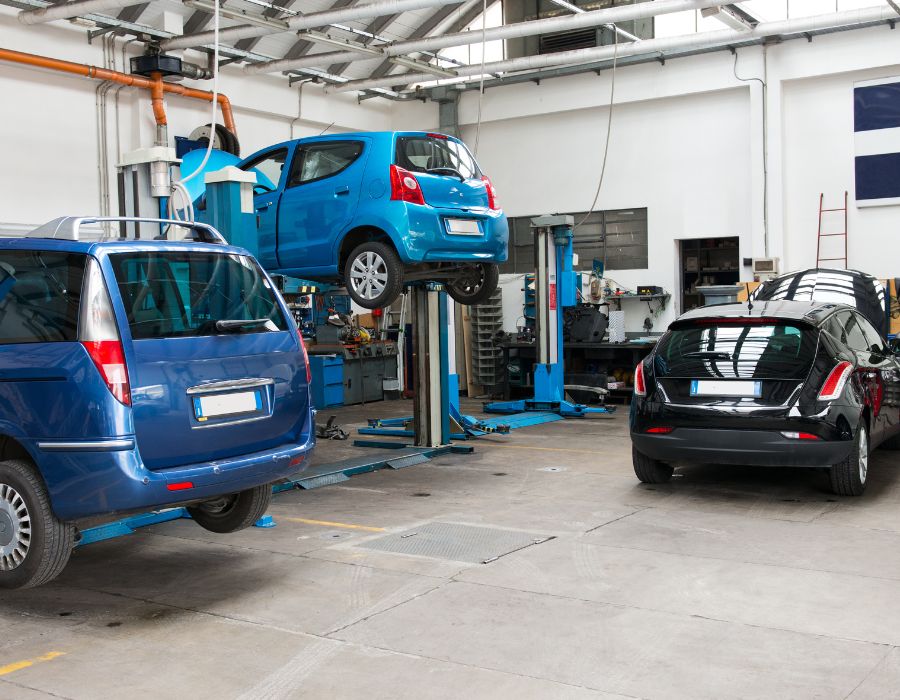
What State Inspection Covers
State vehicle inspection programs ensure that vehicles on public roads meet minimum safety and emissions standards. Inspections typically cover safety-critical systems like brakes, lights, steering, suspension, tires, and exhaust systems, plus emissions testing in areas with air quality concerns.
The specific requirements vary by state, but the goal is always the same: keep unsafe and polluting vehicles off public roads to protect drivers, passengers, and the environment.
Our State Inspection Services
- Safety Inspection: Comprehensive check of all safety-related systems and components.
- Emissions Testing: Measurement of exhaust pollutants to ensure compliance with environmental standards.
- OBD Testing: Computer system scan to verify proper operation of emissions control systems.
- Visual Inspection: Examination of required safety equipment and proper installation.
- Documentation: Proper completion of all state-required paperwork and certificates.
- Reinspection: Follow-up inspection after any needed repairs are completed.
Common Inspection Items
- Brake System: Brake pad thickness, rotor condition, brake lines, and proper operation.
- Lighting: Headlights, taillights, turn signals, brake lights, and hazard lights must all function properly.
- Steering and Suspension: All components must be secure and functioning for safe vehicle control.
- Tires: Adequate tread depth and no structural damage that could cause failure.
- Mirrors: Required mirrors must be present and provide clear visibility.
- Windshield and Wipers: Windshield must be free of damage in driver’s vision area, wipers must work.
- Exhaust System: Must be secure and not leak exhaust gases into passenger compartment.
- Seat Belts: All required seat belts must be present and function properly.
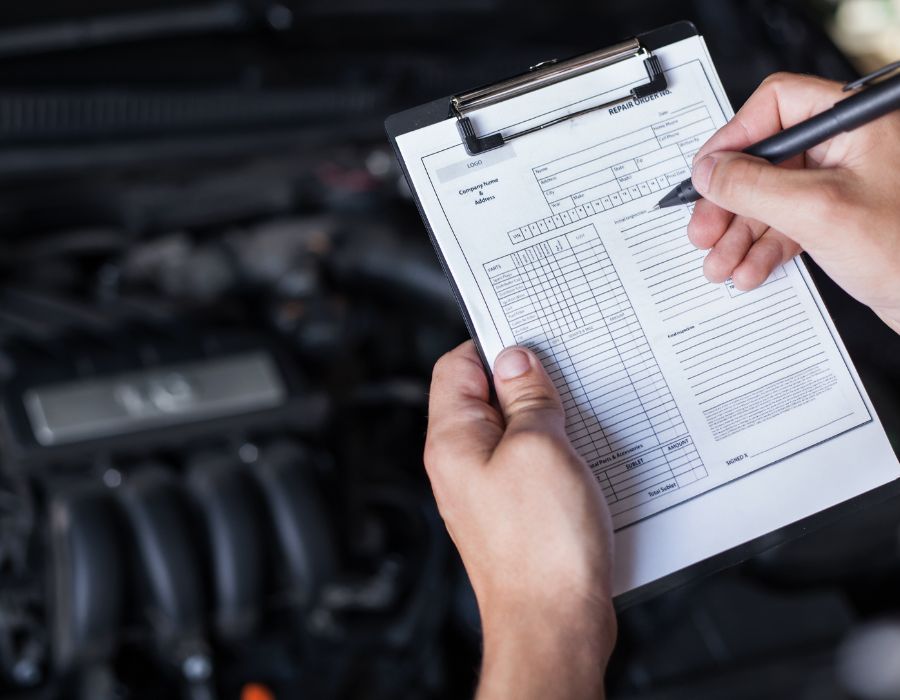
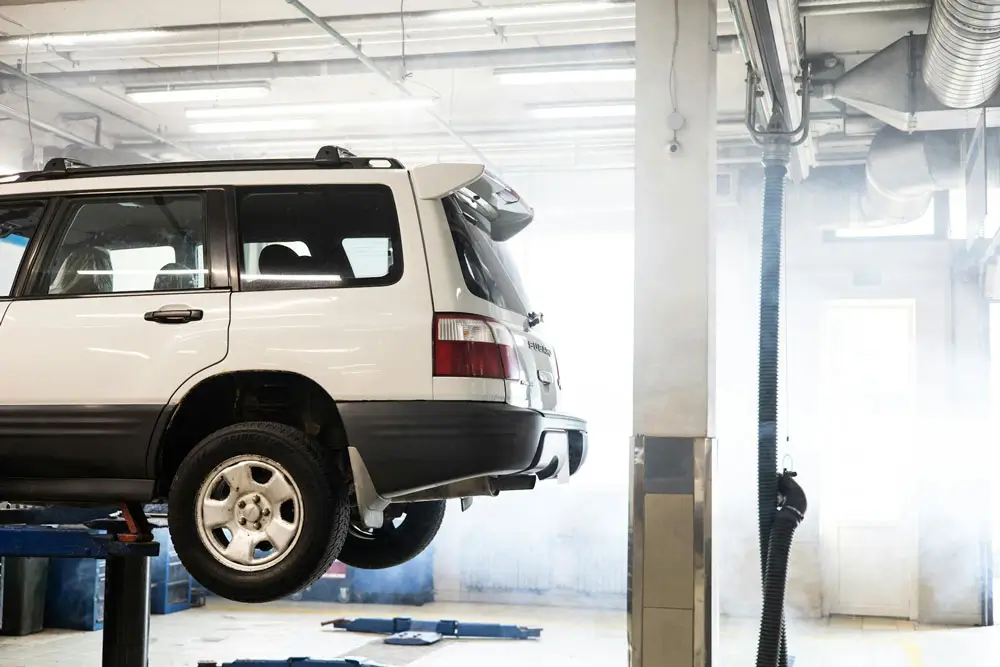
Preparing for Your Inspection
- Address Warning Lights: Any illuminated check engine or other warning lights will cause inspection failure.
- Check Basic Functions: Ensure all lights, wipers, and other required equipment work before inspection.
- Tire Condition: Make sure tires have adequate tread and are properly inflated.
- Clear Windshield: Remove any obstructions or damage in the driver’s field of vision.
- Bring Required Documents: Have registration, insurance, and previous inspection certificates available.
- Recent Repairs: If you’ve had engine work done, drive the vehicle for several days to reset computer monitors.
Common Reasons for Inspection Failure
- Check Engine Light: The most common cause of inspection failure in states with emissions testing.
- Brake Problems: Worn brake pads, damaged rotors, or brake system malfunctions.
- Lighting Issues: Burned out bulbs, damaged lenses, or non-functioning electrical components.
- Tire Problems: Insufficient tread depth or tires with structural damage.
- Exhaust Leaks: Holes or damage in the exhaust system that allow harmful gases to escape.
- Windshield Damage: Cracks or damage in areas that obstruct driver vision.
- Emissions Failures: Vehicles that produce emissions above allowable limits.
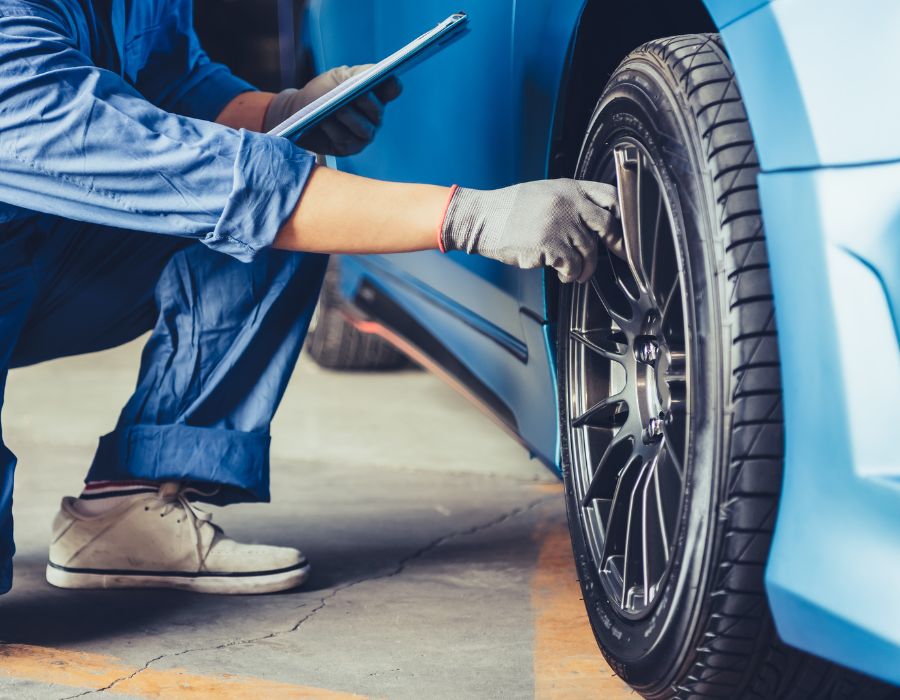
What Happens If You Fail
- Repair Requirements: Failed items must be repaired before the vehicle can pass inspection.
- Repair Documentation: Some states require documentation of repairs from qualified shops.
- Reinspection: After repairs, the vehicle must be reinspected to verify compliance.
- Time Limits: Most states allow limited time to complete repairs and reinspection.
- Driving Restrictions: Some states restrict driving of vehicles that fail inspection.
Emissions Testing Components
- Tailpipe Testing: Direct measurement of exhaust gases for older vehicles.
- OBD Testing: Computer system check for vehicles with onboard diagnostics.
- Visual Inspection: Verification that all required emissions equipment is present and connected.
- Readiness Monitors: Computer systems must show that all emissions systems have been tested.
- Gas Cap Test: Fuel system integrity testing to prevent fuel vapor emissions.
Inspection Frequency
- Annual Inspections: Most states require yearly safety and emissions inspections.
- Biennial Programs: Some states inspect vehicles every two years.
- New Vehicle Exemptions: Many states exempt new vehicles for the first few years.
- County Variations: Inspection requirements often vary by county based on air quality needs.
- Seasonal Programs: Some areas only require inspections during certain times of year.
Cost Considerations
- Inspection Fees: State-set fees typically range from $15-50 depending on location.
- Repair Costs: Failed inspections may require repairs ranging from minor to expensive.
- Late Penalties: Some states charge penalties for late inspections.
- Registration Impact: Expired inspections can prevent vehicle registration renewal.
- Insurance Issues: Some insurance companies require current inspections for coverage.
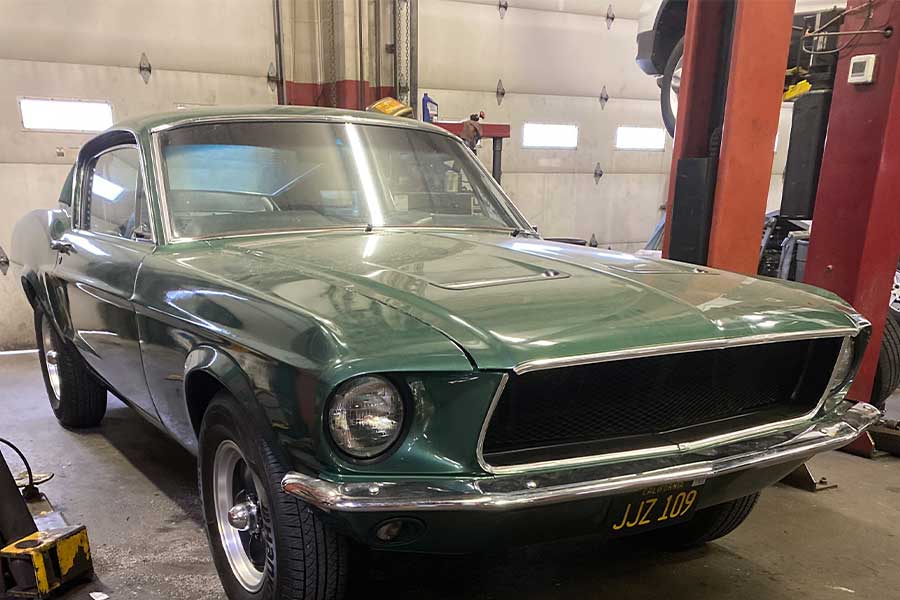
Special Circumstances
- Out-of-State Vehicles: Different requirements for vehicles registered in other states.
- Modified Vehicles: Special procedures for vehicles with aftermarket modifications.
- Classic Cars: Some states have different rules for antique or classic vehicles.
- Commercial Vehicles: Trucks and commercial vehicles often have additional requirements.
- Motorcycle Inspections: Different procedures and requirements for motorcycles.
Inspection Station Requirements
- Certified Facilities: Only state-licensed inspection stations can perform official inspections.
- Trained Inspectors: Technicians must be certified to perform inspections.
- Proper Equipment: Stations must have calibrated equipment for accurate testing.
- Record Keeping: Detailed records of all inspections must be maintained.
- Quality Control: Regular audits ensure stations follow proper procedures.
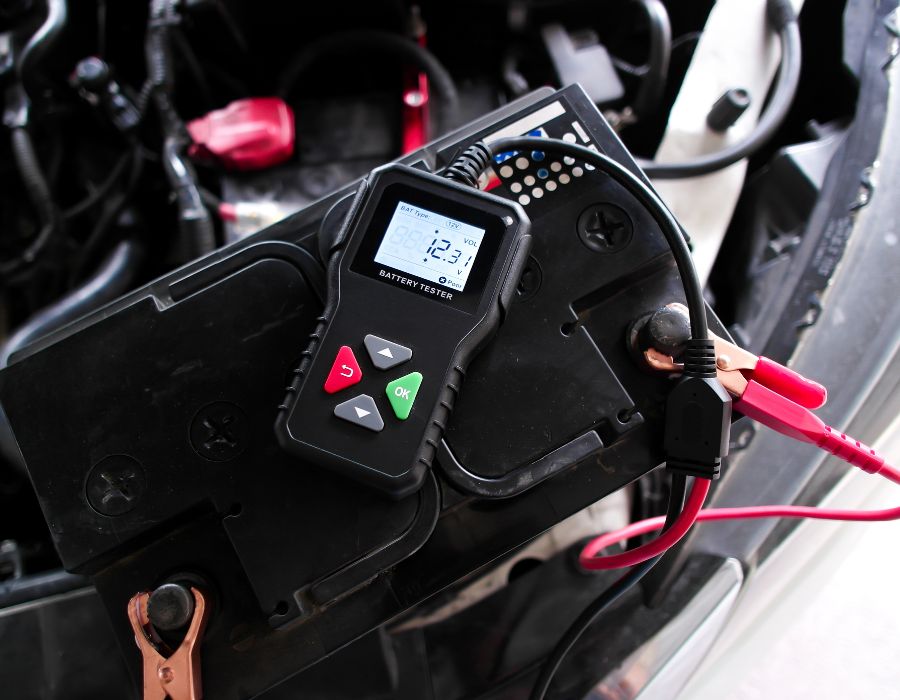
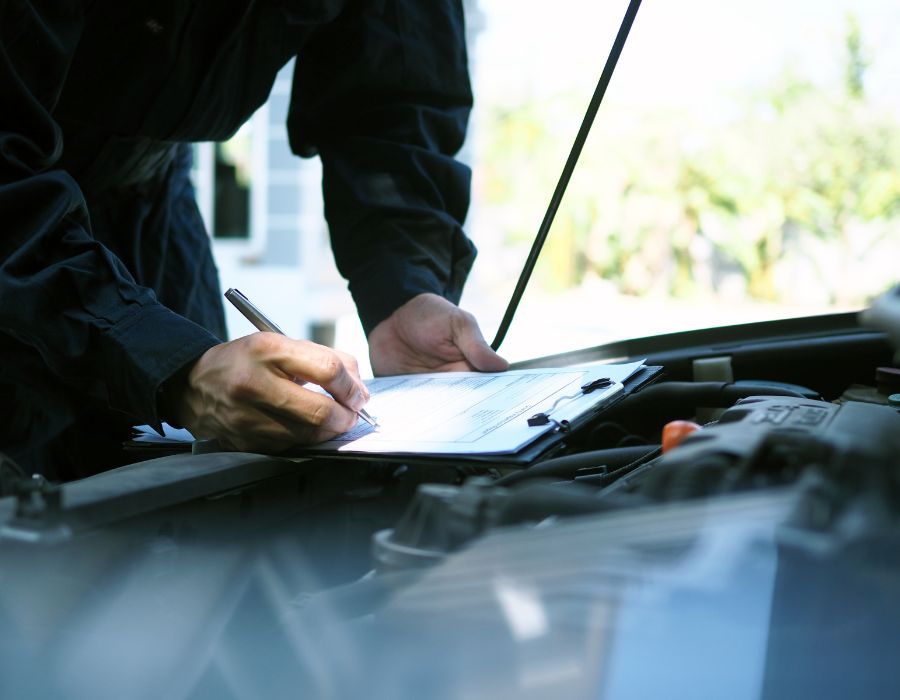
Benefits of Regular Inspection
- Safety Assurance: Regular inspection catches safety problems before they cause accidents.
- Environmental Protection: Emissions testing helps maintain air quality.
- Legal Compliance: Current inspection keeps you legal and avoids fines.
- Early Problem Detection: Inspection often reveals problems before they become expensive.
- Maintenance Reminders: Regular inspection encourages proper vehicle maintenance.
Common Misconceptions
- Inspection vs Maintenance: Inspection doesn’t include maintenance, only evaluation of current condition.
- Pass/Fail Only: Inspections don’t grade condition, only whether minimum standards are met.
- One-Time Fix: Passing inspection doesn’t guarantee no problems until next inspection.
- Universal Standards: Requirements vary significantly between states and localities.
Why Choose Our Inspection Service
We’re a state-licensed inspection station with certified technicians who understand current requirements and procedures. We use properly calibrated equipment and follow all state protocols for accurate, reliable inspections.
If your vehicle fails inspection, we can perform the necessary repairs and reinspection to get you legal quickly. We explain any problems we find and help you understand what’s required for compliance.
Schedule Your State Inspection
Don’t wait until your registration expires to get your inspection done. If your inspection is due or you’re approaching the deadline, give us a call to schedule your appointment.
We provide fast, accurate inspections and can handle any repairs needed to bring your vehicle into compliance. Keep your vehicle legal and safe with professional state inspection service from certified technicians who know the requirements.
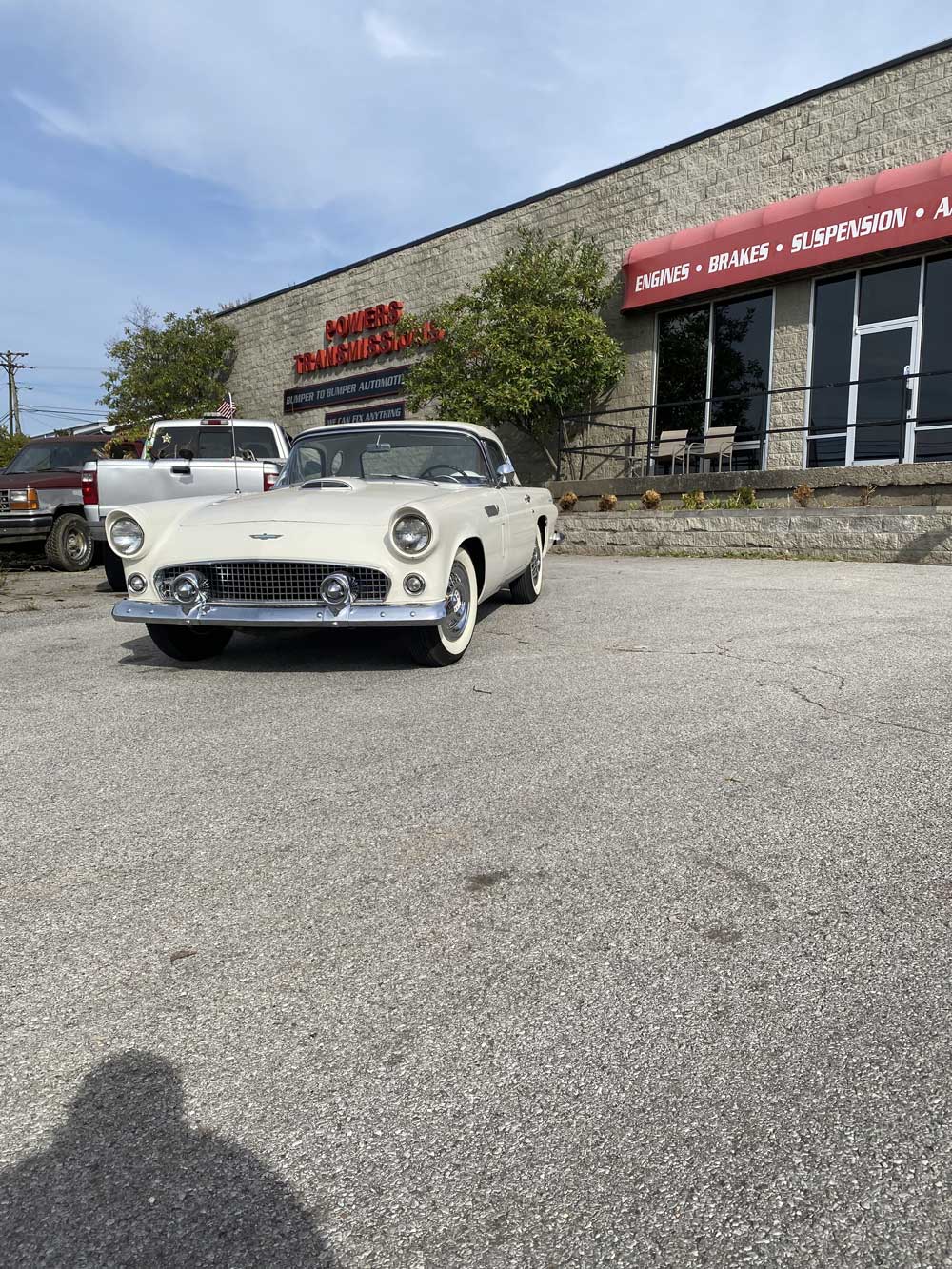
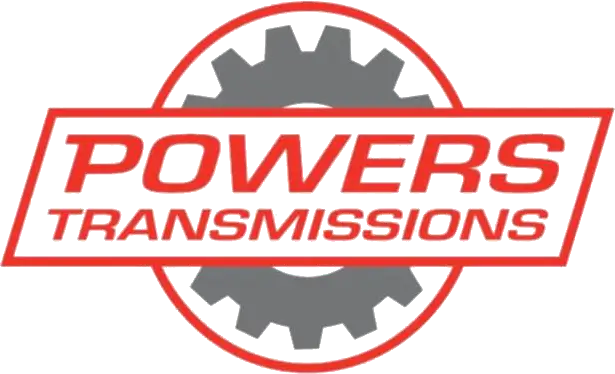
Areas We Serve
- Winchester Lexington
- Lane Allen Lexington
